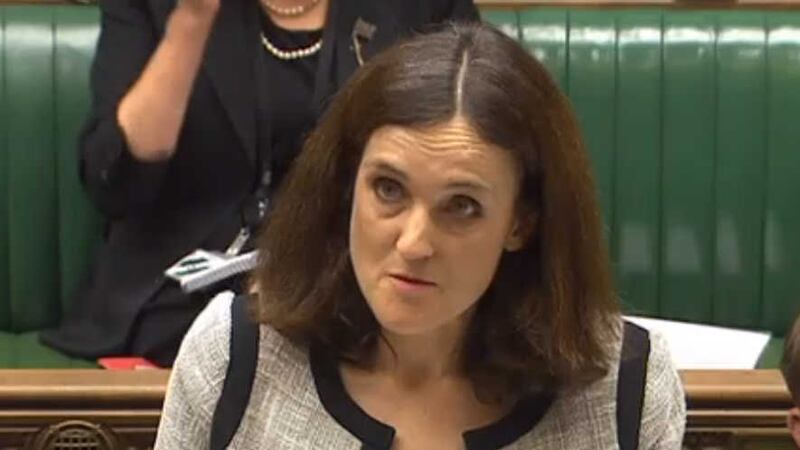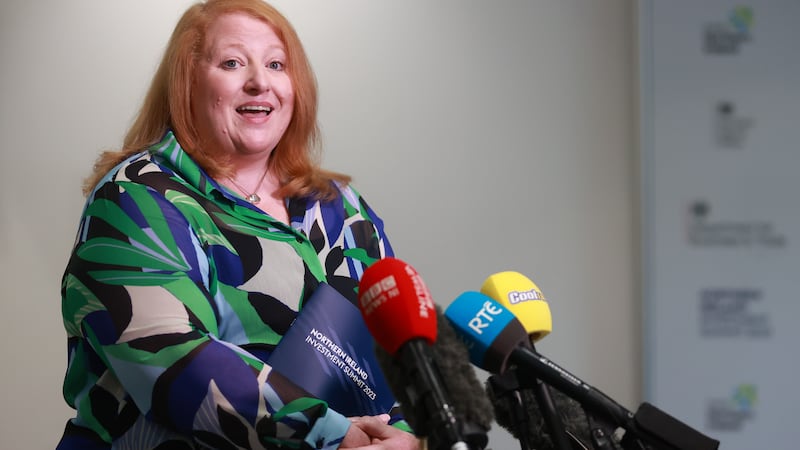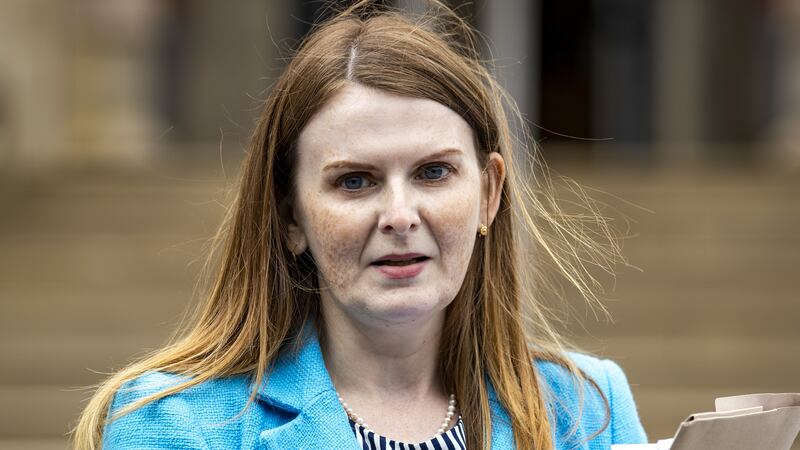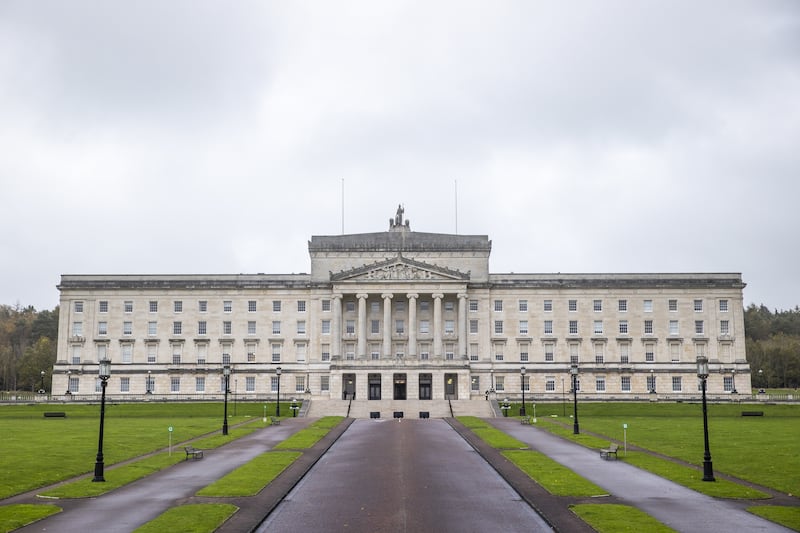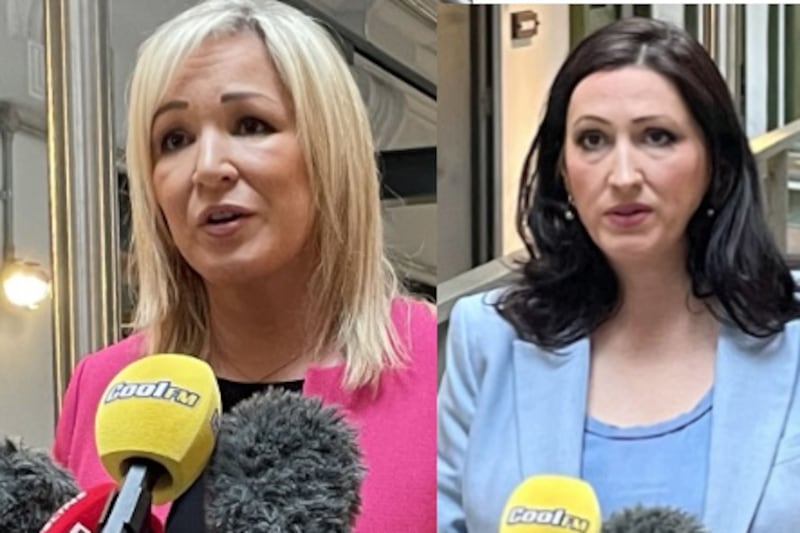The British government has said "serious consideration" needs to be given to establishing a new body to monitor paramilitarism in the north.
Secretary of State Theresa Villiers outlined the potential of a mechanism such as the Independent Monitoring Commission (IMC), which assessed the status of paramilitary structures during the peace process, as she updated the House of Commons on the political crisis at Stormont sparked by a murder linked to the IRA.
Prior to addressing parliament, unionist politicians had stressed the importance of her statement in determining whether they take part in cross-party talks to save power-sharing.
The DUP and Ulster Unionists have indicated their presence in any round-table negotiations would depend on Ms Villiers taking definitive action against paramilitarism first.
However, Sinn Fein has insisted there can be no preconditions attached to the process.
Ms Villiers told MPs the political situation is "very grave", and relations between the parties have "almost completely broken down".
Ms Villiers said no one wanted to wind back the clock and return to direct rule from Westminster.
The mandatory coalition Executive in Belfast is teetering on the verge of collapse.
The UUP has quit the administration and the DUP has pulled four of its five ministers out.
The latest crisis to beset the faltering administration erupted after last month's murder of former IRA member Kevin McGuigan.
Police have said current members of the IRA were involved in shooting the 53-year-old father of nine in a suspected revenge attack for the murder of former IRA commander Gerard "Jock" Davison in Belfast three months earlier.
The disclosures about the IRA have heaped pressure on Sinn Fein to explain why the police assess that the supposedly defunct paramilitary organisation is still in existence.
Sinn Fein insists the IRA has gone away and has accused the two unionist parties of contriving a crisis for electoral gain.
Ms Villiers told the Commons the two "brutal" murders had brought into "sharp focus" the problems around the continued existence of paramilitary organisations.
"The Government is clear that paramilitary organisations have no place in a democratic society," she said.
"They were never justified in the past, they are not justified now, and we all need to work together to find a way to bring to an end this continuing blight on Northern Ireland society.
"The Government is working with the parties on how to achieve that goal.
"For example, serious consideration needs to be given to whether the time is right to re-establish a body along the lines of the Independent Monitoring Commission.
"The remit the parties might wish to give to such a body is likely to be different from those addressed by the original IMC, reflecting changed circumstances.
"But there might well be scope for such a body to play a part in providing greater community confidence and repairing working relationships within the Executive.
"The government will also actively consider whether there is more that we can do to support efforts to tackle organised crime and cross-border crime in Northern Ireland."
Ms Villiers said the Government would continue to hear representations from the region's politicians in the days ahead to "ensure all parties can engage" in the talks process.
In response, DUP leader Peter Robinson indicated his party would wait for this exercise to be completed before making a decision regarding negotiations.
He tweeted: "Heard SoS's holding statement & commitment 'in the coming days' to respond to concerns. This delays start of Talks. We await her response."
In regard to the shape and remit of any new IMC-type body, Ms Villiers said it would be important to "build consensus across the main parties".
She said there had to be a balance between the format of a new body and the time taken to set it up.
"Some structures may be an ideal approach, but if they take a long time to get established that might be problematic," she said.
"So we need to look for a compromise middle way which provides an effective institution with independence and people have confidence in, but doesn't take forever to set up and report."
Sinn Fein's Conor Murphy said there should be "no delays or preconditions" in beginning all-party talks.
"These talks should begin immediately," he said.
"We are approaching these talks to achieve a resolution and that should be the goal of all political parties.
"If a resolution cannot be found then the next step will be to go to the polls and call a fresh election."
During the Westminster debate, Ms Villiers was asked on a number of occasions whether Prime Minister David Cameron intended to get more involved in efforts to resolve the crisis, with some MPs questioning his commitment to the issue.
The Secretary of State said: "The Prime Minister makes regular visits to Northern Ireland, I am sure he will be doing so again in due course. But I can assure you he is in day to day contact about events as they unfold. He is hugely supportive of Northern Ireland matters and is taking a great interest in what is a very serious political crisis."
